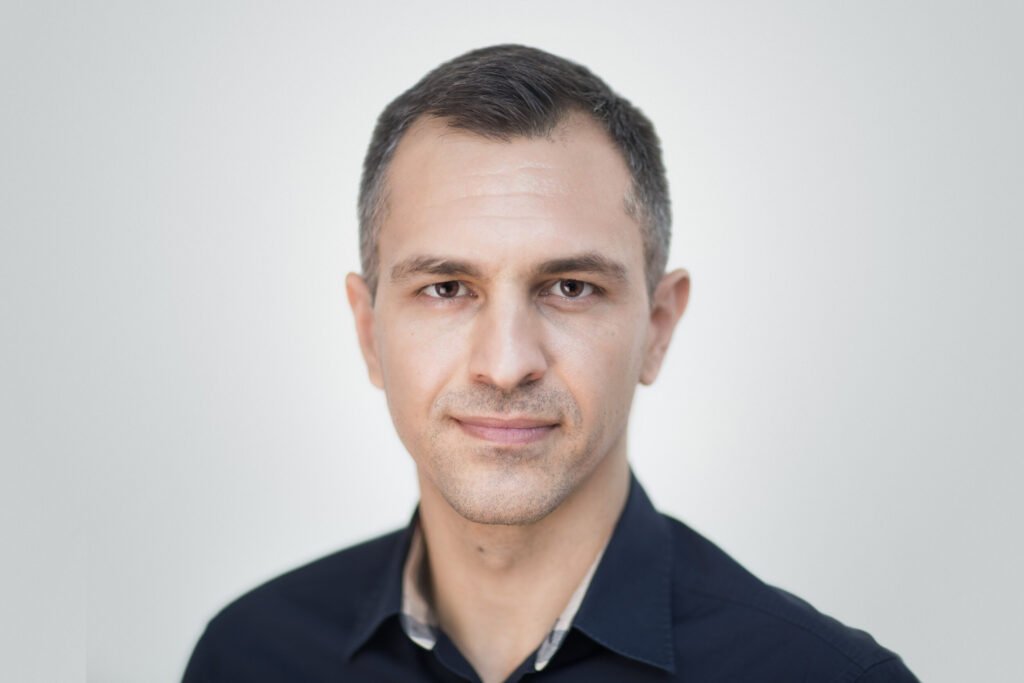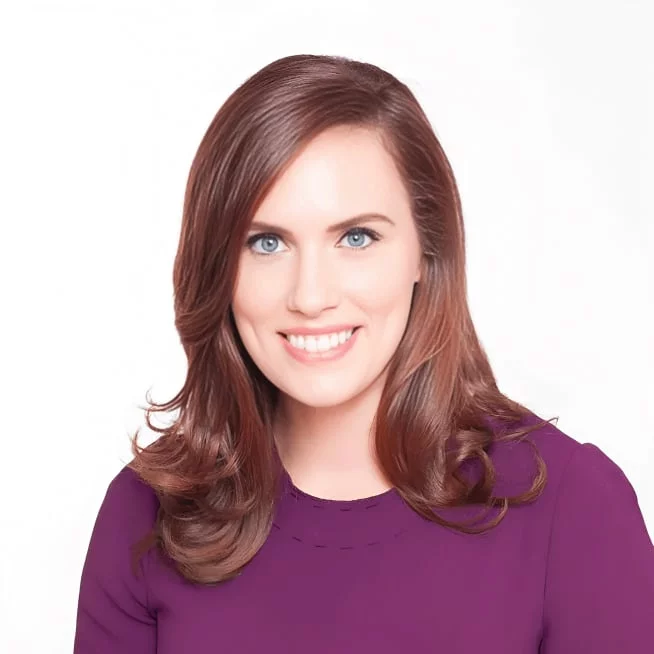I recently went one on one with Anthony Welgemoed. Anthony is the co-founder and CEO of Ziflow and was previously the co-founder and CTO of ProofHQ.
Adam: Thanks again for taking the time to share your advice. First things first, though, I am sure readers would love to learn more about you. How did you get here? What experiences, failures, setbacks or challenges have been most instrumental to your growth?
Anthony: Supporting creative and marketing teams to streamline their workflows has been my career focus for the last two decades. In 2007 after completing my MBA from London Business School, I began working for a company that provided marketing procurement software and services, Mtivity. At this time, I met Mat Atkinson, who was the founder of Mtivity, and now is my co-founder at Ziflow, but I’ll get to that in a moment.
When I met Mat, he was already onto his newest project: ProofHQ, an online proofing solution for marketing and creative teams. He spoke to me about his need for a “technical co-founder,” and I was brought on as the company’s CTO soon after. We quickly established a great working relationship, and I became passionate about ProofHQ’s mission to help creative teams get more done every day.
It was fantastic to be a part of ProofHQ’s growth, driven by a much-needed solution for marketing managers, ad agencies, designers, creative teams, and design managers that enabled them to simplify getting feedback and approval on creative and marketing assets. I should point out that the MarTech industry didn’t even exist when ProofHQ started. By 2015, the software was helping thousands of companies across the world review and approve millions of proofs per year, and we were in talks with Workfront regarding the acquisition. Once it went through in July of 2015, and after a transition period, Mat and I set about looking for our next project.
We originally started Ziflow around the idea of automating creative production tasks – the tedious, yet important, tasks that take up so much of creative teams’ time every day.
It was clear early on in our customer conversations, with Workfront having integrated ProofHQ into its platform as a component, that there was a market gap for a standalone offering in online proofing. After about six months or so, we decided to pivot to online proofing.
Adam: How did you come up with your business ideas? What advice do you have for others on how to come up with great ideas?
Anthony: My best advice for others starting a business is to draw on your personal experience, have empathy, and proactively identify your market gap. Let me explain.
In the past decade, marketing complexities have exploded, brought on by digital technology and geographically disparate teams that oversee global campaigns, social channels, etc. By tuning into the market and the challenges being experienced, it is easy to derive a lot of information for your future solution. In the case of Ziflow, the complexities and amount of work we have seen marketing and creative teams take on each year is immense. We noticed that creative processes for review and approval were experiencing delays, bottlenecks, lack of proper tracking, and lacking advanced automation.
We had empathy for these situations, experiencing and seeing them first-hand. When designing Ziflow, we wanted to take the complexity away from the review and approval process and instead simplify creative production and its various elements. As I stated before, this, coupled with identifying a market gap for a standalone, enterprise-ready offering, led us to focus Ziflow on that unserved market segment.
Adam: How did you know your business ideas were worth pursuing? What advice do you have on how to best test a business idea?
Anthony: We knew a company like Ziflow was worth pursuing because we had identified the market gap. You can see this in most verticals. There will be a platform solving for a solution that will grow so large that it leaves a market segment behind. An example is Salesforce. It grew too large to provide small teams with an adequate tool, so Pipedrive and others launched to fill that gap.
My goal for Ziflow is to become the industry’s leading online proofing solution that solves this one problem of reviewing and approving millions of creative/marketing assets really, really well. When startups can replace and then improve on the previous offering to fill the gap, they have the benefit of taking advantage of the education already present in the space. It can be a great opportunity to grow a business in a place where other bigger players have left the market.
Adam: What are the key steps you have taken to grow your businesses? What advice do you have for others on how to take their businesses to the next level?
Anthony: My past experience with workflow issues gives me a huge amount of empathy for others in my situation. The “gut feeling” I had that others are experiencing the same problem is what gave me the confidence to provide a solution for it.
Although we had some initial market-driven conversations around what the platform would look like and its features, we really focused on getting it out into the market as quickly as we could. We spent a year developing Ziflow, and once it was launched, we had a technology base that allowed us to eventually pivot the solution.
Thankfully, we were in a position to fund the original development and the pivot. If there is no funding, it gets a bit harder (time, resources, money, etc.) to pivot the solution. In this case, I highly advise non-funding startup founders to solve something that they have to deal with on a daily basis, in a very small way, and then just build on that. It is easier to create something from what you already know than to start with a fresh idea without specific industry experience. Once you are able to get 10 paying customers, you can get 100, and then 1,000, and so on.
To get there, companies have to be willing to talk to customers or potential customers on a regular basis to garner feedback on the present solution so that improvements can be made constantly. However, in my experience, development velocity is key. If you mess up your development process, then you’re not going to get as much product out as you’d like. This is tied closely with work culture. For me, every minute counts in business and I like to hire people who feel the same way. It is critical for taking your business to the next level. Obviously, finding a balance between productivity and burnout is critical as well, but my point is that if a team of 10 people are set to join a meeting, and one is late, that’s lost productivity. Every minute should count when growing a startup.
Adam: What are the most important trends in technology that leaders should be aware of and understand? What should they understand about them?
Anthony: One trend to be aware of and understand is computing power. Power is going up, while cost is coming down, both in a very quick time frame. A great example of this is seen with active 5G rollouts across more rural areas of the world. Plus, with needs for scalability and integration with newer technologies such as artificial intelligence (AI) and machine learning (ML), processing power is essential and in high-demand. With more power, you can do more stuff, which is good news for software companies.
Adam: In your experience, what are the defining qualities of an effective leader? How can leaders and aspiring leaders take their leadership skills to the next level?
Anthony: Personally, I think it’s important that leaders minimize red tape as much as possible. However, an organization will run most smoothly if it implements the leadership style of the CEO, whether that be more hands-on or hands-off. I can only speak from my own experience and why I choose to lead like I do.
At Ziflow, I try to be as interactive with the product’s development as possible, and from a staffing perspective, I try to ensure that our team members are not bogged down with administrative overhead like unnecessary meetings. With more of my attention on the product, being deeply involved in its architecture, I think has afforded me more respect from the people who are trying to drive its development as well.
A business, in a way, is like a living organism. People with a bunch of different roles and personalities come together to ensure that Ziflow is going to live, survive, function, and adapt in this SaaS world. To maintain effective leadership, I think you’ve got to really know your business – every single aspect, even at a micro level where a problem can reside and can then be mitigated for. Effective leaders are never afraid to get their hands dirty and wade through the technical weeds of product development or issues on the sales front, even if it isn’t the most appealing job to do at the time.
Adam: What is your best advice on building, leading and managing teams?
Anthony: My advice for any business is to focus on culture. It might sound cliche, but culture is drawn from the company mission and future vision. It’s important to ask “where are we going” and “what do we want to achieve.” At Ziflow, we did this by establishing one clear goal that everyone at the company could get on board with and work towards. This is absolutely vital.
We still have objectives and key results (OKRs), but I do think that if you have too many goals it is harder to accomplish the most important ones. At Ziflow, because we only have one main goal that is driving our business, everyone internally cares about our performance at the end of each quarter, how we are either progressing toward or falling short of our goal. Then, at the executive level, we can determine how best to shift organizationally to maintain or build momentum in support of our goal. To me, having one goal is essential for any staff and a company’s cultural values, mission, and vision.
Adam: What are your three best tips applicable to entrepreneurs, executives and civic leaders?
Anthony: My three best tips for business leaders would be to
-
Get good at hiring so that the right people are in place to support a successful business;
-
Be positive in every situation because people are going to follow your example; and
-
Maintain strong mental health by minimizing stress through activities like exercise, whatever makes you happy, so that the people around you see confidence, not depression.
Adam: What is the single best piece of advice you have ever received?
Anthony: Well, let me start out by candidly stating that leaders will receive much more bad advice throughout their career than good advice, so hopefully this falls under the latter. I’m even at fault for giving bad advice, but with experience, I now give better advice. I even see it with my kids and notice that when my wife and I provide advice, it is often not utilized. It’s individual experience that provides the lesson, not necessarily the words.
However, I did hear Warren Buffet say that decreasing the advice you utilize is most beneficial to growth, and from this, I always try to focus on my strengths. In my experience, if a leader can determine what their strengths are and then determine the strengths of those around them, growth can happen continually.
One thing I’d recommend is to focus on making your strengths better and learning the strengths of those around you. The result is creating a better relationship with everyone on your team since you’ll be focused on what they are good at, which demonstrates that you take notice of their skills and can tap into what makes them happy. You get the best out of people when they are happiest and enjoy what they are doing.
In summary? My advice is to figure out what you’re good at and what those around you are good at and go and do it or prompt them to go and do it, without worrying about the rest. Work on a specific strength and become the smartest in that area that you possibly can.









